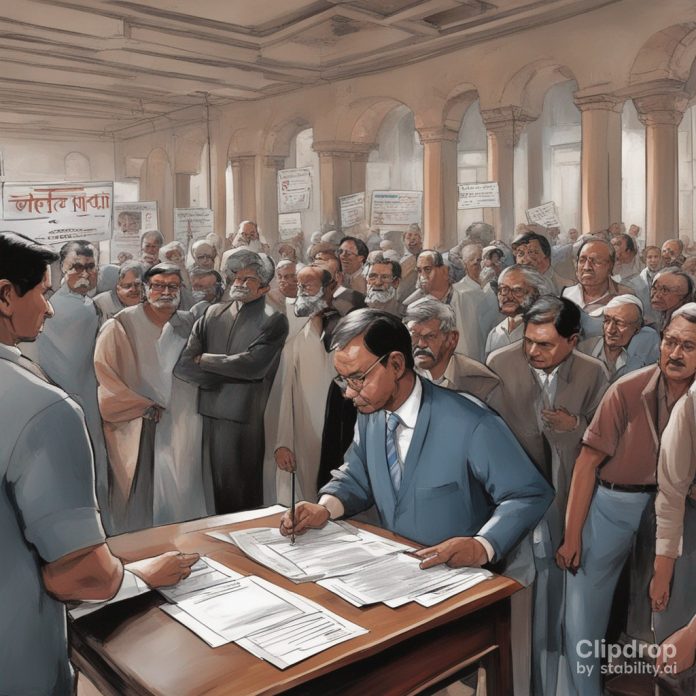Introduction
Elections lie at the core of any democratic nation, shaping the trajectory of governance and public representation. In India, a country known for its diverse cultural fabric and intricate political landscape, the process is governed by a complex set of election laws and regulations. This blog delves into the intricacies of India’s electoral framework, shedding light on the laws that govern campaigns, funding, and conduct, while highlighting the significance of adherence to ensure a fair and transparent democratic process.
The Constitutional Framework
India’s election laws are rooted in its Constitution, which provides the framework for the conduct of elections at various levels, including the Lok Sabha (lower house of Parliament), state legislative assemblies, and local bodies. The Constitution delineates the roles and responsibilities of the Election Commission of India (ECI), an autonomous body entrusted with overseeing and regulating the electoral process.
- Registration and Eligibility
Candidates and political parties must adhere to strict eligibility criteria, including age, citizenship, and criminal record regulations. Political parties are required to register with the ECI to participate in elections, reinforcing transparency and accountability.
- Campaign Finance
Election campaigns require significant funding, but regulations are in place to prevent the undue influence of money in politics. The Representation of the People Act, 1951, imposes limits on campaign expenses and requires candidates and parties to disclose their sources of funding.
- Model Code of Conduct
The Model Code of Conduct is a set of guidelines issued by the ECI to ensure ethical behavior during election campaigns. It outlines standards for political parties and candidates, curbing activities that could polarize voters or undermine the democratic process.
- Reservations and Affirmative Action
Inclusion and representation are central to India’s democracy. Electoral laws reserve seats for marginalized communities in legislative bodies, promoting equal political participation and social justice.
- Electronic Voting Machines (EVMs)
EVMs have revolutionized the electoral process by ensuring accuracy, speed, and secrecy in voting. These machines, backed by stringent security measures, have become a symbol of the modernization of Indian elections.
- Code of Conduct for Media
Media plays a crucial role in shaping public opinion. The ECI issues guidelines for media coverage during elections to ensure fairness, objectivity, and balanced reporting.
Challenges and Concerns
While India’s electoral laws aim to establish a level playing field, challenges persist. The use of money power, vote-buying, hate speech, and the misuse of religious sentiments are issues that threaten the integrity of the electoral process. The emergence of social media has added a new dimension, with concerns about fake news, misinformation, and digital manipulation.
Ensuring a Fair and Transparent Democracy
To navigate the complexities of India’s election laws, stakeholders must prioritize ethical conduct, transparency, and compliance. Political parties, candidates, media, and voters all play critical roles in upholding the integrity of the democratic process.
Conclusion
India’s vibrant democracy thrives on the principles of inclusivity, representation, and accountability. Navigating the intricate web of election laws and regulations is essential to uphold these ideals. By understanding the legal framework, adhering to codes of conduct, and embracing transparency, all stakeholders contribute to strengthening the foundation of Indian democracy and preserving the sanctity of the electoral process.

